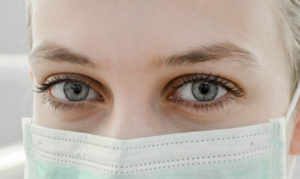The majority of states in the U.S. have ordered “Non-Essential” businesses to close in order to prevent further spread of the COVID-19 virus.
While that means many workers are being forced to stay at home, it also means that essential workers will be going into work amid serious health and safety risks. Read on to learn about who qualifies as an essential worker and what steps employers can take to keep them protected during this time.
Who is an Essential Worker?
It’s easier to start by understanding which workers are “non-essential.” While the specific definition varies from state to state — non-essential workers are those employed by organizations that provide recreational products, services, or experiences. This includes bars, clothing stores, gyms, theaters, museums, and more.
Related: Is COVID-19 a Recordable Illness?
The Department of Homeland Security defines essential workers as those employed by businesses and operations necessary for the health and safety of the public. These generally include hospitals, pharmacies, grocery stores, public works, gas stations, banks, post offices, and food processing and transportation services.
How to Protect the Health of Essential Workers
- Stagger shifts: Schedule members of your team for shorter work shifts at different times. It’s still possible to keep projects running on schedule with staggered shifts.
- Limit physical interaction: You’ve heard of “social distancing,” and you can apply the same concept on your jobsite. Try to keep workers six feet away from each other by splitting up break times and locations, and making workers aware that they shouldn’t get too close.
- Provide necessary safety equipment: In addition to any normal PPE that may be required on your jobsite, employers should also provide masks, hand sanitizer, wipes, and paper towels. Managers should also consider scheduling regular cleaning in areas where workers congregate.
- Limit customer interaction: The rules of social distancing also apply if you work face to face with customers. Stay six feet away, and limit the number of customers who can come into your business place to one at a time.
- Implement medical surveillance: You’ve probably heard of companies keep thermometers on hand to test workers on arrival, but you can take health precautions one step further with medical surveillance.
Worksite Medical can dispatch a mobile medical unit to your jobsite to perform Coronavirus Symptom Screening, respirator fit tests, and more. You can get access to instant respirator questionnaire medical clearances via our all-new online portal.
***
About Worksite Medical
In most cases, OSHA requires medical surveillance testing, and at no cost to employees.
Worksite Medical makes that program easier with mobile medical testing.
We conduct on-site respirator fit tests, as well as pulmonary function tests and heavy metal lab work, right on your job site. We also keep accurate, easy-to-access medical records for your convenience. You’ll keep your employees at work, and stay ahead of OSHA inspections.
With Worksite Medical, a mobile medical testing unit — we can bring all the resources of a lab to you. Our certified lab technicians can perform both qualitative and quantitative respirator tests to ensure a perfect fit.
Protect your team and your workplace now with Worksite Medical. Not sure what you need? Try our medical testing wizard here.
Give us a call at 1-844-622-8633, or complete the form below to schedule an on-site visit or to get your free quote!




